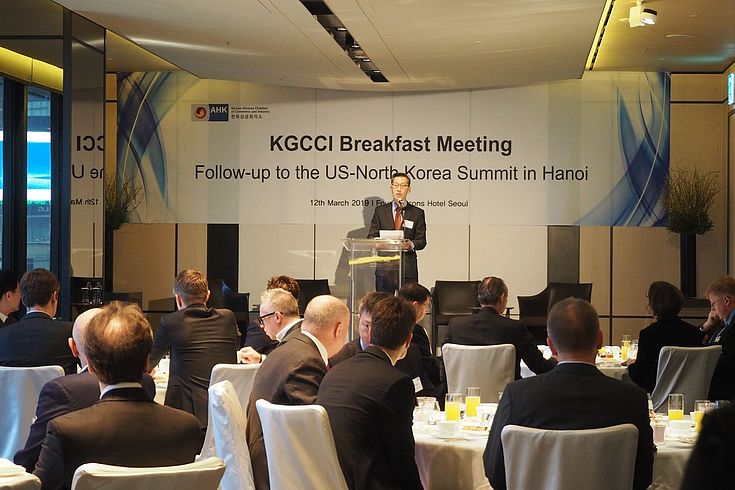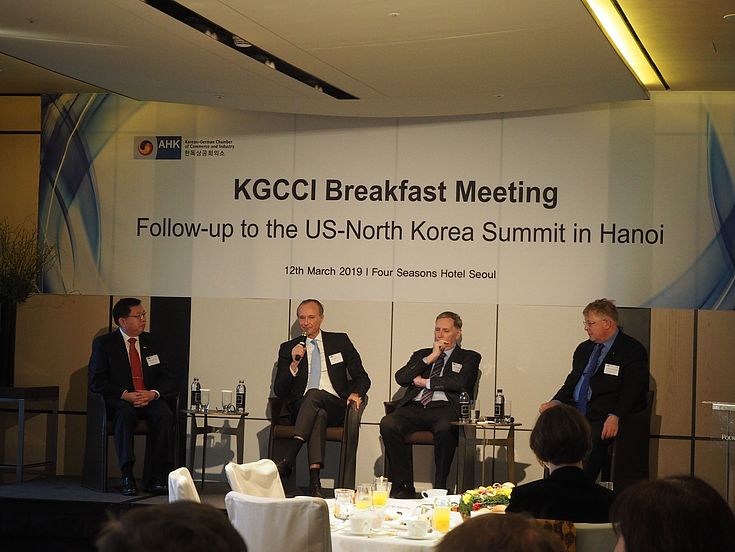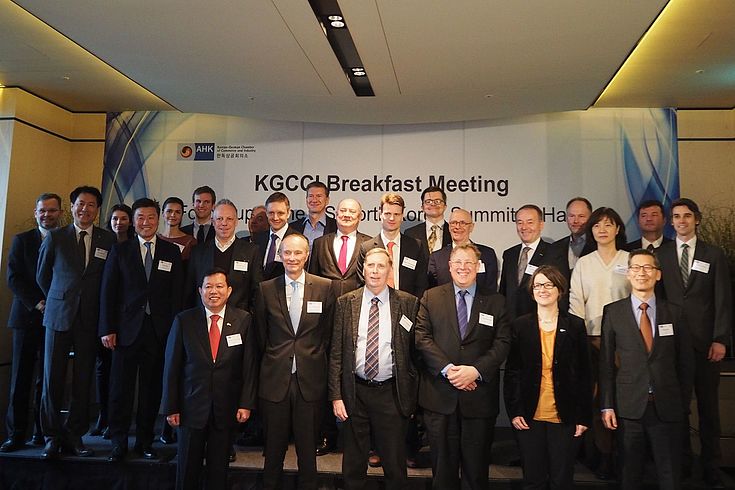Meeting
Follow-Up to the US-North Korea Summit in Hanoi
Vice President Hoje Woo from the AHK announces the panel discussion
HSS
The second US-North Korea summit took place on the 27th and 28th February in Hanoi and it did not lead to what Donald Trump calls a “deal”. The estimations beforehand on how the gathering of the US-President and Kim Jong-Un would result, were rather diverse. The scenarios of possible outcomes were located within a spectrum ranging from an agreement on stopping the testing of nuclear missiles and making future plans on how to denuclearize North Korea in the long term, to not achieving any sort of further advancement.
What can curious and involved businesses deduce from the summit? Is the outcome of not reaching an agreement a tragedy, as some point out; or may it be that the negotiations are still fruitful and the engagement with North Korea has to be done in a patient but convinced way? KGCCI has organized a follow-up meeting on March 12th with experts discussing what happened during the Hanoi Summit and what to consider regarding the ongoing negotiations and different agendas in the future.
From left: Lieutenant General (ret.) Chun In-bum, H. E. Stephan Auer (German Ambassador in Seoul), Tony Michell Ph.D (Korea Associates Business Consultancy), Dr. Bernhard Seliger (HSF Korea)
HSS
Dr. Bernhard Seliger moderated a panel talk, which included H. E. Stephan Auer (German Ambassador in Seoul), Lieutenant General (ret.) Chun In-bum and Tony Michell Ph.D (Korea Associates Business Consultancy). Brief introductory statements by each participant were followed by a talk and questions from the audience.
It has been agreed by the panelists that Kim Jong-Un has to make the next move and choose between one of two options. Either to demonstrate military strength again and risk stricter sanctions, possibly even from China who also has an interest in the denuclearization, or he can compromise and aim for a way of relieving sanctions by working towards an agreeable plan of denuclearization. The experts agreed that forcing an all-or-nothing approach in the negotiations would be the wrong thing to do. More engagement with North Korea and convincing Kim Jong-Un on planning a sequenced process together will lead to a consistent and positive outcome for all parties involved. Denuclearization of other countries such as South Africa and Iran were also a long-term procedure.
Group photo of the participants
HSS
The Hanoi summit did not lead to any sort of agreement and part of the reason was that Kim Jong-Un did not come up with a plan on denuclearization. He is still trying to relieve sanctions while also keeping his nuclear threat intact. The rest of the world has to convince him, that he won´t be able to drive in both of these lanes and that cooperation will be the only way in which his country will make further progress. For German businesses active in Korea, it means that North Korea remains an interesting object of observation, as a geopolitical risk, but also a future potentially interesting location – but it has a long way to go, before opportunities can be realized there.



